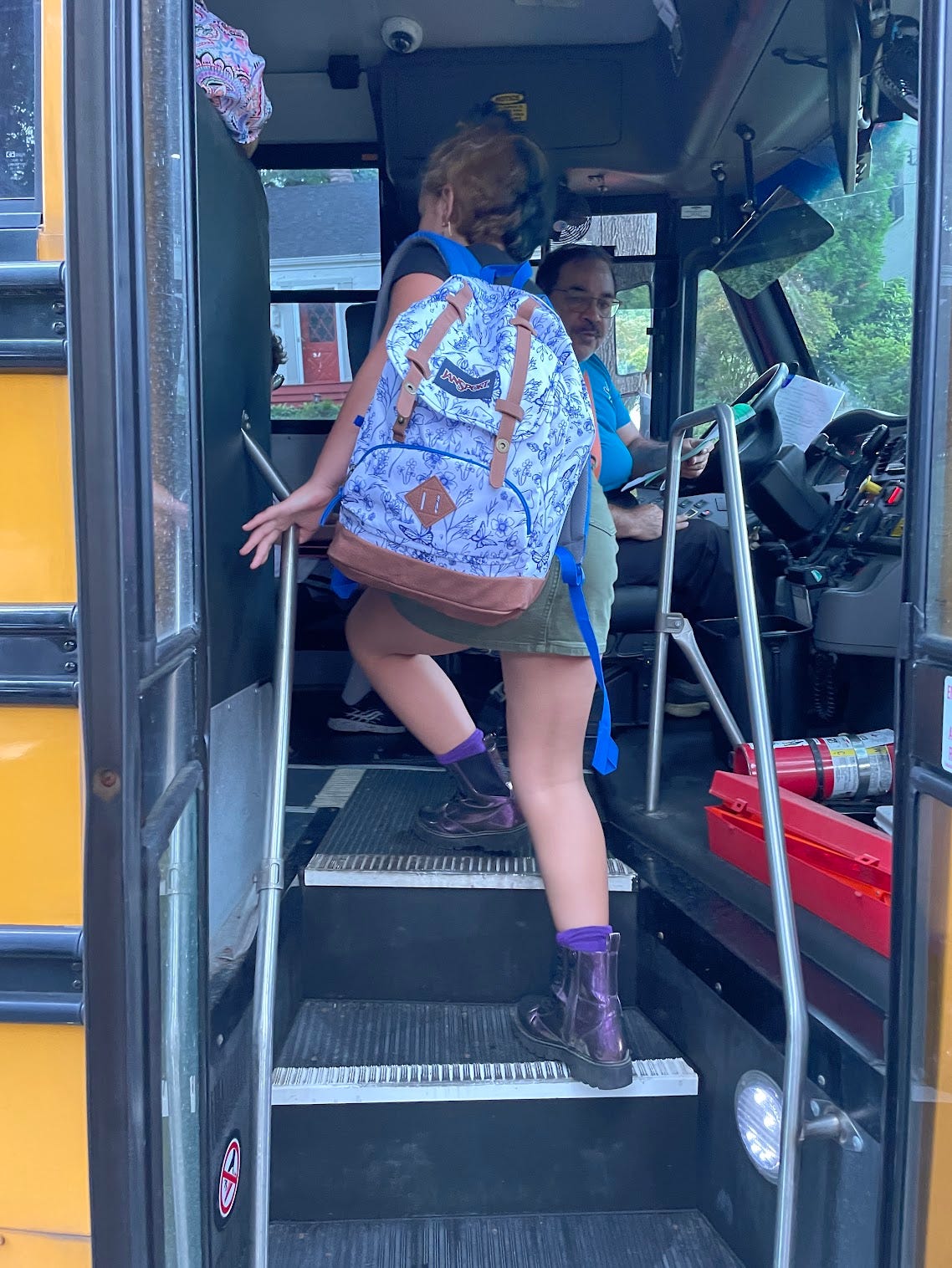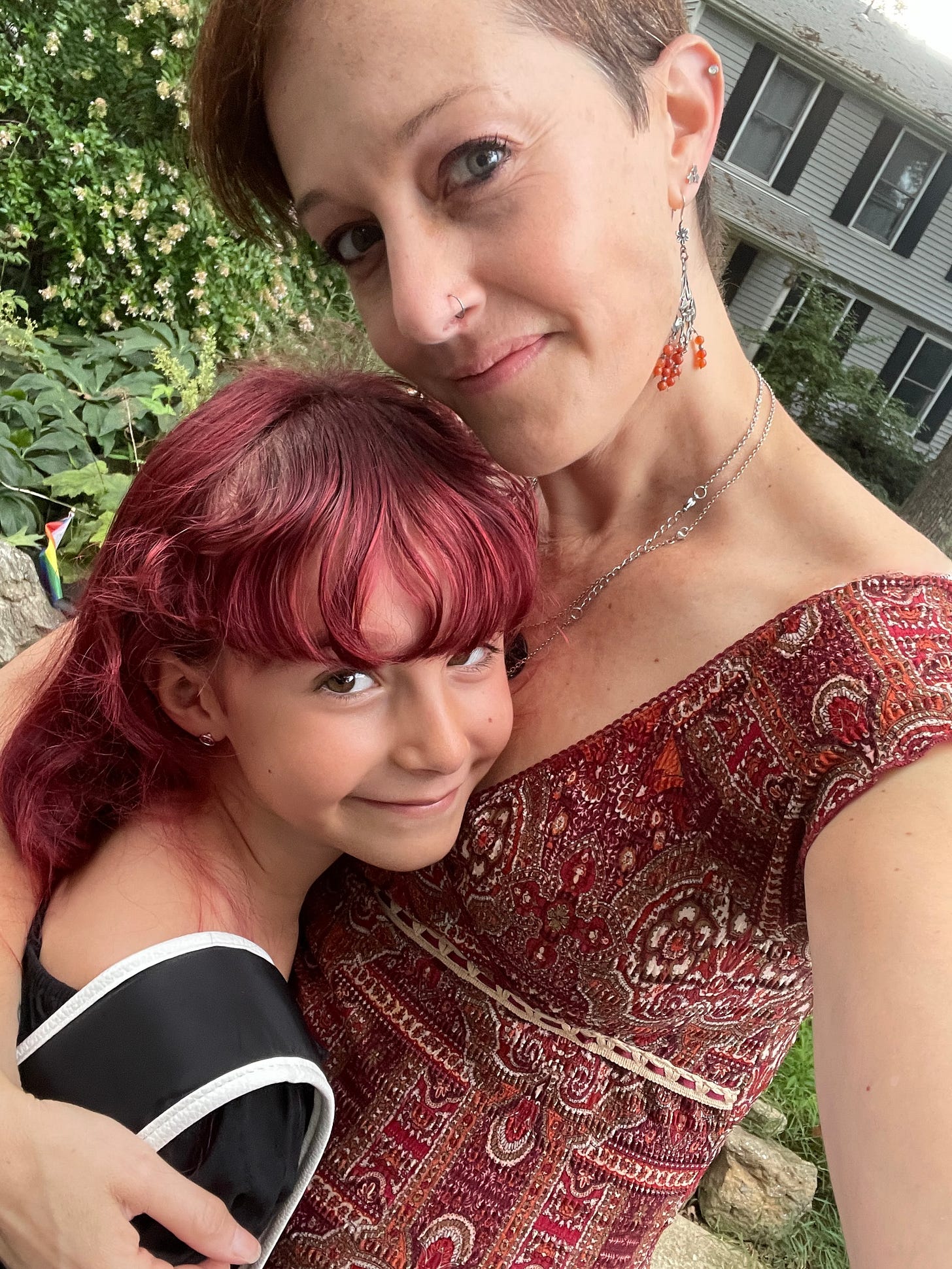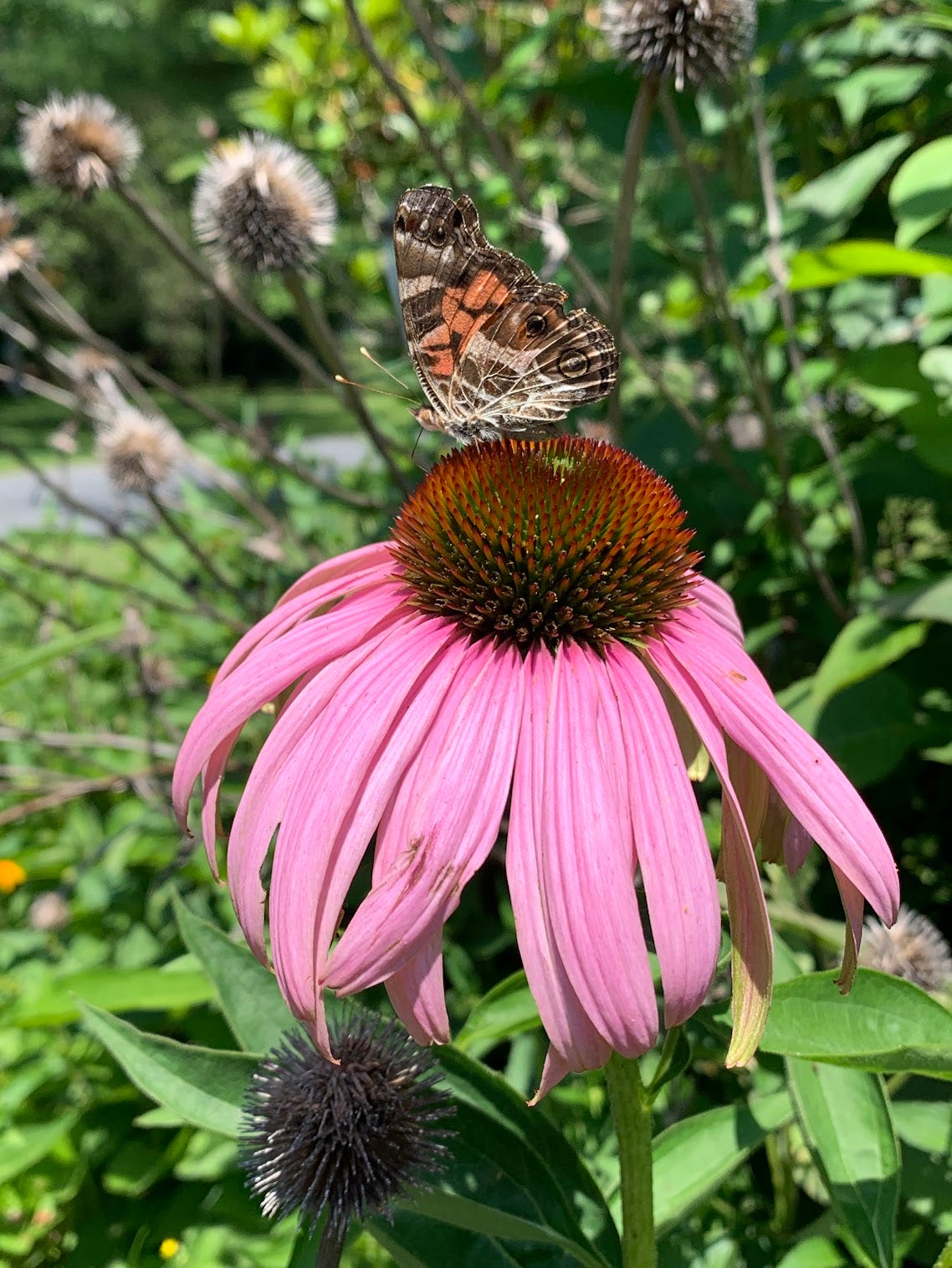I went searching for a poem to fit the theme of this essay, and I searched and searched and searched and finally landed (accidentally) right on one of the tiny number of poems that I hold dearest, a poem I only ever associated with death but that I am certain works here too, one I have sent to countless loved ones in their dark days, and one I cannot believe I have never quoted on this site (really? never? the search function might be lying…).
Whew. That’s wild. Anyway:
In Blackwater Woods
Look, the trees
are turning
their own bodies
into pillars
of light,
are giving off the rich
fragrance of cinnamon
and fulfillment,
the long tapers
of cattails
are bursting and floating away over
the blue shoulders
of the ponds,
and every pond,
no matter what its
name is, is
nameless now.
Every year
everything
I have ever learned
in my lifetime
leads back to this: the fires
and the black river of loss
whose other side
is salvation,
whose meaning
none of us will ever know.
To live in this world
you must be able
to do three things:
to love what is mortal;
to hold it
against your bones knowing
your own life depends on it;
and, when the time comes to let it go,
to let it go.
—Mary Oliver
Ash is the Queen of Goodbye.
This is not a title she ever wanted, naturally. And it is a terrible title for any child, much less a child who loves fast and deep, who has no friends only “best friends,” and who wears her heart, throbbing and open, on her sleeve.
But so it goes in the world of mental illness. She goes to the hospital, meets children who understand her better than any other children possibly can, and then the gates of HIPAA slam down when they are discharged and the friendship is permanently severed (she cried almost daily for several months after saying a forever goodbye to one particular hospital friend). She opens up to therapists, endures hours of questioning and conversation about all of the topics that make her feel most vulnerable, and the therapists quit, leaving her exposed and raw. She leaves the cohort she has been with since kindergarten when she can no longer function at school, and suddenly her best friend is someone she sees only occasionally. And when she is out of school, the district sends her a tutor, and she spends six hours a week for six weeks being loved on by a marvelous teacher who showers her with kindness and attention, and then leaves when the time is up. Each of these leavings gut her, and yet there is no end in sight.
Of course two weeks ago I thought perhaps there was an end - a school placement she could stay with through the end of high school - but then she was rejected from that school for being too sensitive and too academically advanced, and so when the school year started she was relegated to what’s known as a “stay put” placement - the school in our district closest to what a non-public placement can offer, which will be her temporary home until we can work out a permanent placement.
Which is how, as the first day approached, I found myself again trying to coach her through and over the waterfall of leaving that she will inevitably have to navigate again soon.
But this time, in the long conversations we had as we talked through the prospect of this temporary school, a silver lining emerged, perhaps implicitly impelled by the ghost of Mary Oliver, whispering In Blackwater Woods in my ear.
I remembered back to when Vee was in kindergarten, in the magical classroom of Amy Brooks, who is and always will be one of the greatest teachers I have ever met (I wrote about her in The Washington Post, and she deserves all the fame).
The policy in Maryland is that when a child with significant special needs moves into a district, they attend their home school until they can be placed in an appropriate school. I remember times back when I was teaching in Prince George’s County when children would sojourn in my classroom for a brief period, and I would do my best to make it home for them for however long they stayed. But nothing I did compared to Mrs. Brooks.
The year Vee had Mrs. Brooks, a child was placed in her class pending a permanent placement. This child had very severe developmental disabilities, and Mrs. Brooks certainly knew that he would not be with them long. It did not matter though. From his first day in the classroom to his last, when she threw him a party and gave him and his mom a memory book she had compiled and his favorite kind of toy (which of course she had quickly ascertained), Mrs. Brooks showered him with love. Vee and the other children, watching her and learning, befriended him too, and the whole classroom became a safe harbor for him while he awaited a transfer.
I told Ash this story because, among many meanings, this meaning suddenly stood out: Love is not bound by human time. We can give and receive love deeply in a day or a week or a month, and it is not lesser for being brief. Of course there is heartache whenever love leaves, but when we live in the light of our blessings, the pain is somehow mitigated by the happiness we feel for a moment or a while.
So now a week of school has passed and Ash indeed is surrounded by love from the teachers and paraeducators and therapeutic staff in her temporary school. She comes home smiling, full of stories about the kind moments, the funny moments, the happy moments that have strung her day from the first bell to the last. It is not the same, of course, as settling in for the long run, but it is not a trifle either. For the days and weeks she stays, she will be loved, and that love will carry her through.
This lesson is a handy one for parenting. Because she attended a magnet program for middle school that draws kids from many different neighborhoods, Vee is heading to high school without her best friends - two exquisitely kind and wonderful kids whose bonds with Vee could be a model for any adult friendship. They will stay in touch, for sure, but it is not the same. And so she must adjust, leaning into the new world, while still nurturing and appreciating the love she has left behind.
Elise has it a bit easier this year, as she starts third grade at a new school with most of the same kids from her K-2 school, but the bittersweet pang of brief love will no doubt come for her as well, and when it does, I will be ready to both soothe her sad heart and hold up her shining memories to the light, so that her sweet face is reflected in the glow.
It was Tennyson who said this first (and best) - “‘tis better to have loved and lost than never to have loved at all” - but heck, it took him 564 lines in a single poem to get to that truism, so one can imagine that helping a sensitive child absorb the same lesson (again and again) might take some doing. I am here to be that help, but oh, I hope I can send Ash soon into a situation that feels more solid. She deserves nothing less, no matter how much she has followed Mary Oliver’s directive:
to love what is mortal;
to hold it
against your bones knowing
your own life depends on it;
and, when the time comes to let it go,
to let it go.









Fair enough. But feisty is all that matters. <3
What a strong sense of self you have instilled in your beautiful daughters. I wish them, and you, a lifetime of joyful friendships - knowing that, while some will be brief, others, like ours, will last forever.